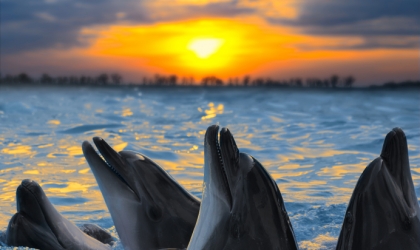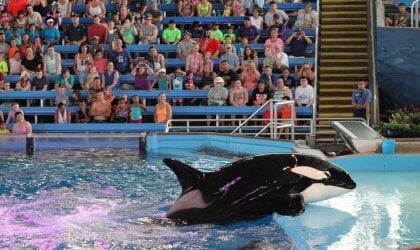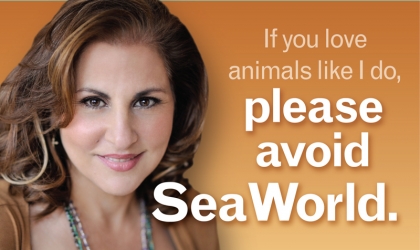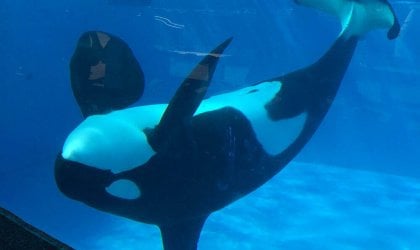Update: Earlier this month, SeaWorld terminated agreements with Chinese real estate group Zhonghong Holdings Group to develop China-based theme parks. The terminations come two years after Zhonghong became SeaWorld’s largest shareholder. The license and design agreements were reportedly canceled because of a lack of payment on Zhonghong’s part, which is hardly surprising news: Less than a year ago, during SeaWorld’s “horrible July,” Zhonghong reportedly admitted that it couldn’t pay its bills. It was allegedly forced to sell its Ruyi Island resort complex, where it had planned to build a new Chinese SeaWorld park. Its chair then reportedly fled to Hong Kong and was “in hiding.” Irrespective of any business agreements, SeaWorld’s focus should be on necessities—such as developing seaside sanctuaries for the animals it currently imprisons and ending the captivity of sea mammals.
Originally posted on April 5, 2017:
Chinese real estate group Zhonghong Zhuoye Group Co., Ltd., has agreed to purchase a 21 percent stake in SeaWorld Entertainment Inc.—along with the rights to develop SeaWorld parks in China, Hong Kong, Macau, and Taiwan. In response, PETA, Sea Shepherd Global, the Animal Legal Defense Fund, the Kimmela Center for Animal Advocacy, the International Marine Mammal Project of the Earth Island Institute, In Defense of Animals, and Sonar sent a letter calling on the group to keep captive animals out of any SeaWorld parks that it may open.

In the letter, the organizations note that as films such as Blackfish have been released around the world, people have learned that far-ranging orcas and other marine mammals suffer and die prematurely in SeaWorld’s tiny tanks—and attendance has plummeted.
PETA points out that while SeaWorld’s ticket sales are at their lowest point since the 2013 release of Blackfish, the decline can be reversed: A recent U.S. poll revealed that nearly 70 percent of parents—SeaWorld’s key demographic—would be more likely to visit the parks if the orcas were released into sanctuaries.
PETA—whose motto reads, in part, that “animals are not ours to use for entertainment”—is calling on SeaWorld not to flee overseas but rather to develop ocean sanctuaries in which orcas could finally have some semblance of a natural life.
What You Can Do
Click below to urge SeaWorld to end all animal acts at its parks and release the dolphins and whales into seaside sanctuaries:




